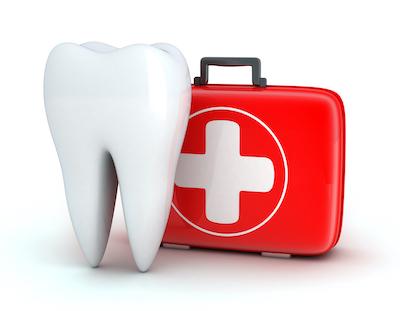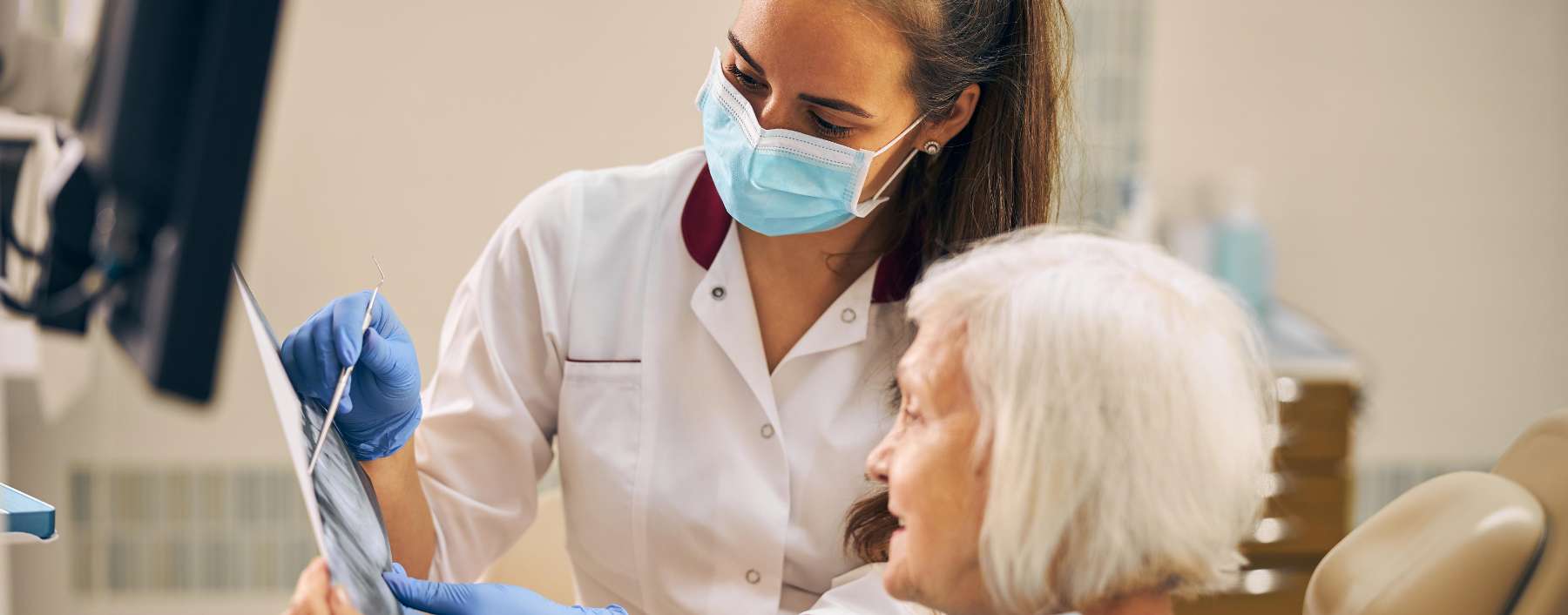
We understand that dental emergencies can be frightening, which is why we take measures to treat these situations quickly. Our goal is always to keep you smiling!
Common dental emergencies include:
- Toothaches or Increasing Sensitivity
- Jaw or Face Swelling
- Broken Teeth or Restorations
- Oral Injuries
Of course, there are too many emergency scenarios to consider them all in this blog, which is why we encourage you to call our dental office if you have an oral health change or concern. A trained dental team member can assess your symptoms and provide guidance on whether you should come in for emergency dental care in Wilmington, DE.
One important consideration: We count any issue that causes you pain or puts your oral health at risk as a dental emergency!
Is It a Dental Emergency? Assess Your Symptoms
Some oral health changes or issues can wait until the next available appointment. However, it’s essential to assess your symptoms or situation to be sure.
Typically, a minor tooth chip is not a dental emergency unless it’s causing you pain. In any case, we recommend contacting our office to book an assessment with the dentist. A chip can worsen without restorative treatment and put your tooth at risk for loss or more extensive damage.
Likewise, a cracked or compromised restoration can sometimes wait until the next available appointment. In the meantime, be sure to keep the area clean and continue with regular oral hygiene.
Symptoms that shouldn’t wait include tooth pain, swelling, oral injuries, and lost teeth/restorations.
Remember, we recommend calling our dental office if you notice any changes in your oral health, even if it is not a dental emergency. Minor tooth sensitivity and swelling can escalate quickly.
What to Expect: Dental Emergency Care in Wilmington, DE
Our approach to emergency dental care is to assess you as soon as possible, ease your pain, and restore your oral health. We understand that you may be scared or unsure. Don’t worry! We are a gentle and compassionate team dedicated to your smile!
Emergency dental treatments may include, but are not limited to:
- Root Canal Therapy
- Tooth Extraction
- Tooth Restoration
- Tooth Replacement
Root Canal Therapy Saves Your Tooth
If you need a root canal, it means you have a dental abscess or infection in the pulp chamber of your tooth. This infection can worsen quickly, causing significant discomfort, and without treatment, it can spread to neighboring teeth or other areas of the body.
Symptoms of a tooth root infection include some or all of the following:
- Face and/or jaw swelling
- A blister or bump on the gum
- Tooth pain
- Tooth discoloration
Fortunately, we provide gentle root canal therapy in Wilmington, DE.
Tooth Extraction: When Your Tooth Cannot Be Saved
We recommend tooth extraction for severe tooth damage or decay. If the tooth cannot be saved, your dentist will recommend extraction.
Before we extract the tooth, we ensure you’re comfortable and that the treatment area is thoroughly numb.
After extraction, we provide instructions for a fast recovery.
Restorative Dentistry May Be the Solution
Restorative dentistry may include crowning or filling a tooth after treatment. After root canal therapy, we often crown the treated tooth to restore function. We also use restorative dentistry if a tooth is broken or at risk for loss.
Why Tooth Replacement Is Vital
If we can’t save a damaged or deeply decayed tooth, it’s crucial to replace it with a prosthetic or dental implant.
A complete smile contributes to bite function, general oral function, and ongoing oral health.
Options include:
- A Dental Implant
- A Dental Bridge
Waiting for Your Emergency Dental Visit? Advice from an Emergency Dentist
You’ve booked your emergency dental visit, but are looking for relief in the meantime.
For toothaches, we recommend an over-the-counter pain reliever, such as ibuprofen, if you’re medically able to take it. You can try rinsing your mouth with warm salt water and applying an ice pack periodically. Ice packs can also help reduce swelling.
If you’ve knocked out a tooth, try replacing it in the socket or storing it in a cup of saliva or milk until you see the dentist. With timely treatment, we can sometimes restore the tooth to its original position in the gum.
If you have a broken tooth or restoration, be sure to keep the area clean to prevent infection, and if there is bleeding, staunch the flow with soft gauze.
 Lower Your Risks for Future Dental Emergencies with Healthy Habits
Lower Your Risks for Future Dental Emergencies with Healthy Habits
- Visit your dentist every six months for checkups and teeth cleanings.
- Brush and floss your teeth at least twice daily.
- Wear a mouthguard if you play sports.
- Wear a nightguard if you grind your teeth (bruxism).
- Report all oral health changes to your Wilmington dentist.
Dental Emergency Care for Patients of All Ages
Tooth pain and changes in oral health signal that something is wrong, so don’t wait if you have a concern.
To get started or if you have questions, call us today at (302) 475-9220.
We see patients of all ages, including children, and are happy to accept CareCredit financing.
